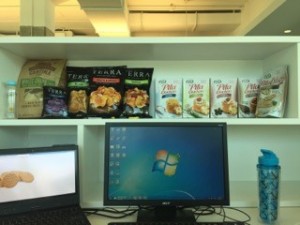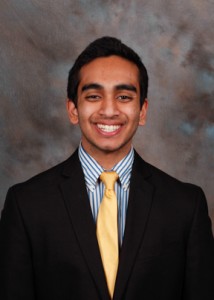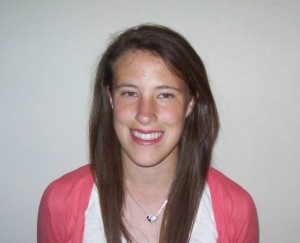This is the next in a series of posts by recipients of the Career Services Summer Funding grant. We’ve asked funding recipients to reflect on their summer experiences and talk about the industries in which they’ve been spending the summer. You can read the entire series here.
This entry is by Melody Cooke, WH ’16
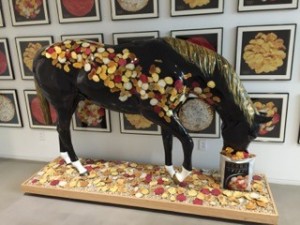 After living in Florida and California for most of my life, I had very few expectations and reference points as to what my summer experience would be like in New York City and Long Island. In addition, there wasn’t much information online about the program or company I was interning at and even less information about the area I was living in. Nevertheless, I took a chance and I couldn’t be happier with my decision as this was my favorite internship experience by far.
After living in Florida and California for most of my life, I had very few expectations and reference points as to what my summer experience would be like in New York City and Long Island. In addition, there wasn’t much information online about the program or company I was interning at and even less information about the area I was living in. Nevertheless, I took a chance and I couldn’t be happier with my decision as this was my favorite internship experience by far.
The company that I was interning at was called Hain Celestial. Most people have never heard of the company, in fact I knew nothing about it until I applied. Although the company’s name doesn’t ring a bell, a lot of their natural and organic brands ring a bell in consumers’ ears. For example, they own Celestial Seasonings Tea, Terra Chips, Sensible Portions, Almond Dream, Health Valley and Greek Gods Yogurt to just name a few. In fact, walk into a Whole Foods and you’ll run into one of their products/brands in almost every aisle. It wasn’t until I started working at Hain that I realized that it was actually the leading CPG (consumer packaged good) company for natural and organic products. On the food and beverage side, almost all of Hain’s products are USDA Organic and/or Non-GMO Project Verified along with gluten, dairy and allergen free lines and overall healthier and cleaner ingredients than comparable products. On the personal care side, almost all of Hain’s products are free from harsh chemicals, parabens, petrolatum and phthalates, have 100% vegetarian ingredients and no animal testing. Even though it was a niche and less well known market, it felt great to be working with high quality and wholesome products that are healthier and better for people and their families.
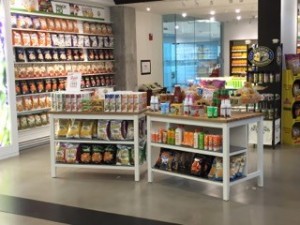 During the summer, I got to work with the Snacks Marketing team on Terra Chips, Garden of Eatin’ and Sensible Portions. I was assigned an amazing mentor who challenged me and awesome team that supported me and gave me feedback. Both my team and projects were a great fit because we had similar work styles and thinking plus I was able to apply and develop my analytical, communication, presentation and collaboration skills on a variety of projects and hands-on tasks. Everyday I had the opportunity to learn something new about brand management and CPG, a field that I’m very interested in pursuing after graduation. I’m very thankful for the opportunity to participate in meetings and work on projects that were actually applicable to my team and Hain’s future competitive strategy. What’s great about Hain was that it was big enough to have a diverse portfolio to work on yet still small enough to have a tight knit team to allow faster execution of plans and opportunities to spearhead projects for Hain’s growth.
During the summer, I got to work with the Snacks Marketing team on Terra Chips, Garden of Eatin’ and Sensible Portions. I was assigned an amazing mentor who challenged me and awesome team that supported me and gave me feedback. Both my team and projects were a great fit because we had similar work styles and thinking plus I was able to apply and develop my analytical, communication, presentation and collaboration skills on a variety of projects and hands-on tasks. Everyday I had the opportunity to learn something new about brand management and CPG, a field that I’m very interested in pursuing after graduation. I’m very thankful for the opportunity to participate in meetings and work on projects that were actually applicable to my team and Hain’s future competitive strategy. What’s great about Hain was that it was big enough to have a diverse portfolio to work on yet still small enough to have a tight knit team to allow faster execution of plans and opportunities to spearhead projects for Hain’s growth.
Aside from my projects, I also had the chance to attend a sweet potato photoshoot with our communications and packaging team (yes, there is such a thing as a food stylist!) as well as visit the PR agency that we work with in Manhattan to learn about data analytics.
The HR department did an excellent job of organizing events that enriched the program. For example, every Wednesday we had lunch & learn’s where someone from one of the departments would present and answer questions about their work and past experiences. They also took us to the Terra Chip Factory in Moonachie, NJ and gave us a Long Island experience by taking us to a Mets game. Finally, all of the interns from different departments were assigned to a group project in which we presented in front of upper management at the end of the internship. We even had an opportunity to have lunch with the CEO three times.
I was really amazed by the program and how well developed it was since was only established last year. They always welcomed feedback and continued to improve the program throughout the summer. I definitely recommend the program to anyone interested in CPG, brand management/marketing and learning about the natural and organic industry (non-gmo project verified, organic, clean ingredient products).
Overall this was an amazing summer with a great internship that really fit my skills, interests and goals to pursue brand management in CPG. I want to thank Career Services for their generous support from first helping me with my application to finally making this internship and moving to New York possible.


